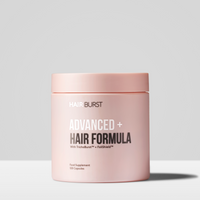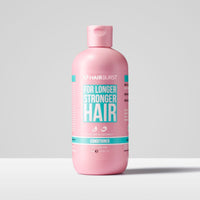Advanced+ Hair Formula
Can inflammation cause hair loss?
Hair loss is a common concern among many people. There can be several reasons for hair loss, including genetics, aging, hormonal changes, medications, and medical conditions. However, one potential cause that is not commonly known is inflammation. Inflammation is a natural response of the immune system to injury or infection, but chronic inflammation can cause damage to the body, including hair follicles. In this blog post, we will explore the relationship between inflammation and hair loss.
The role of inflammation in hair loss
Inflammation plays a crucial role in hair loss, particularly in a condition known as androgenetic alopecia, also known as male or female pattern baldness. Both men and women might experience hair loss due to this genetic disorder. This condition is caused by the hormone dihydrotestosterone (DHT), which causes hair follicles to shrink, leading to hair loss.
Studies have shown that chronic inflammation can cause an increase in DHT production, leading to hair follicle miniaturization and eventual hair loss (1). Inflammation can also cause damage to the hair follicle, leading to the production of cytokines, which can trigger an autoimmune response and cause the body to attack its own hair follicles (2).
Other types of hair loss that can be caused by inflammation include alopecia areata, a condition in which the immune system attacks hair follicles, leading to patchy hair loss (3). Scalp psoriasis, a chronic autoimmune condition that causes itchy, scaly patches on the scalp, can also cause hair loss if left untreated.
Ways to reduce inflammation and prevent hair loss
There are several ways to reduce inflammation and prevent hair loss. One of the most effective ways is to eat a healthy diet that is rich in anti-inflammatory foods. These include fatty fish, leafy greens, nuts and seeds, berries, and turmeric.
Exercise is also an effective way to reduce inflammation. Studies have shown that regular exercise can reduce inflammation markers in the body. Stress management techniques such as yoga, meditation, and deep breathing can also help reduce inflammation and prevent hair loss.
Another way to prevent hair loss caused by inflammation is to use anti-inflammatory hair care products. These products contain ingredients such as tea tree oil, peppermint oil, and aloe vera, which can help reduce inflammation on the scalp.
Conclusion
Inflammation can play a significant role in hair loss, particularly in conditions such as androgenetic alopecia, alopecia areata, and scalp psoriasis. However, there are several ways to reduce inflammation and prevent hair loss, including eating a healthy diet, regular exercise, stress management techniques, and using anti-inflammatory hair care products. If you are experiencing hair loss, it is important to speak with a healthcare professional to determine the underlying cause and develop a treatment plan.
References:
-
Messenger, A. G. (2013). The role of inflammation in hair loss. International Journal of Trichology, 5(3), 167–176. https://doi.org/10.4103/0974-7753.125609
-
Harries, M. J., & Paus, R. (2018). The pathogenesis of alopecia areata: An autoimmune disease? Dermatologic Clinics, 36(2), 155–166. https://doi.org/10.1016/j.det.2017.11.004
-
Chen, M. H., Chen, C. C., & Wang, W. (2018). An updated review of the association between scalp psoriasis and alopecia areata. Dermatologic Therapy, 31(3), e12587. https://doi.org/10.1111
Recent posts

Can inflammation cause hair loss?
Hair loss is a common concern among many people. There can be several reason...

How Stress Affects Hair Growth and What You Can Do About It
Hair loss is a common problem that affects millions of people worldwide, and...

What amount of hair loss is normal?
Hair loss is a common concern for many people, and it can be distressing to ...







 hairburst
hairburst